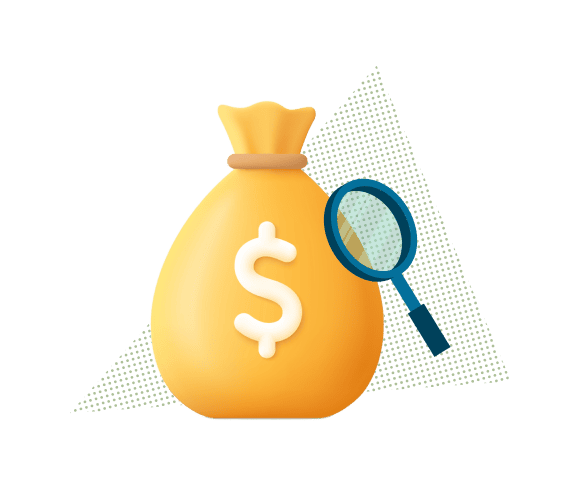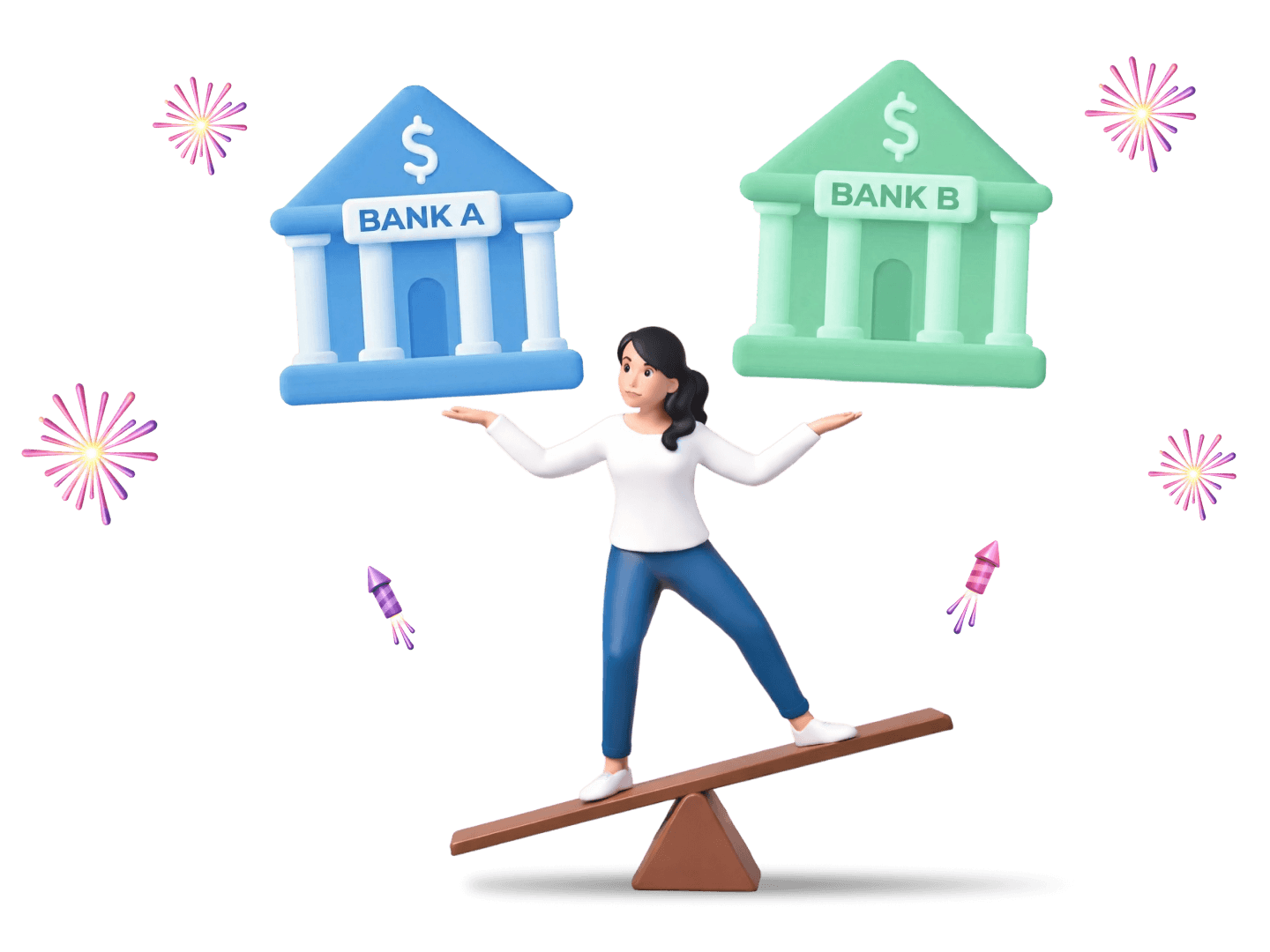Guide to Home Buying: Is It the Right Time to Buy a House?
Updated: 16 Dec 2025
Are you ready to buy a house? Find out how to tell if you’re financially ready and the questions you need to ask yourself.
Market trends offer valuable insight and context, which we'll explore in this article. However, the decision to buy ultimately comes down to your financial position, personal goals, and overall preparedness for homeownership.
» Discover 7 questions to ask yourself to know if you are financially ready to buy a house
This article will examine both perspectives: current housing market conditions and how to assess whether now is the right time for you to buy a home.
Find the lowest home loan rates
Compare home loan rates across Singapore’s top lenders and find the best one for your financial situation.
SingSaver Personal Loans Cashback Offer
Enjoy interest rates as low as 1.08% p.a. (EIR from 2.09% p.a.) and up to S$4,900 in cashback when you apply for a personal loan via SingSaver. Valid till 1 March 2026. T&Cs apply.
Current housing market overview
Understanding the current state of the housing market is crucial when deciding whether it's the right time to make a purchase. Let's dive into some key factors influencing the market today.
Mortgage rates: On the rise
Mortgage rates in Singapore have been on a steady rise, influenced by global economic trends such as inflation and tightening monetary policies. These high rates directly affect the affordability of home loans, increasing monthly repayments for potential buyers. As the market adjusts to these economic shifts, mortgage rates remain a critical factor for anyone considering homeownership.
Current average mortgage rates
Best fixed home loans for HDB flats
Here are the best loans with fixed interest rates:
|
Bank |
First-year interest rate |
Lock-in period |
|
Citibank |
3.20% p.a. |
2 years |
|
DBS |
4.66% p.a. |
2 years |
|
HSBC |
4.00% p.a. |
2 years |
|
OCBC |
2.95% p.a. |
2 years |
Best floating home loans for HDB flats
Here are the best home loans with the lowest floating interest rates:
|
Bank |
First-year interest rate |
Lock-in period |
|
Citibank 3M SORA |
3.67% + 0.55% p.a. |
2 years |
|
DBS CPF Home Rate (CHR) |
2.50% p.a. |
3 years |
|
DBS 3M SORA |
3.67% + 0.75% p.a. |
2 years |
Best fixed home loans for private property
Here are the best loans with fixed interest rates:
|
Bank |
First-year interest rate |
Lock-in period |
|
Citibank |
2.95% p.a. |
3 years |
|
DBS |
2.95% p.a. |
2 years |
|
HSBC |
4.00% p.a. |
2 years |
|
OCBC |
2.90% p.a. |
3 years |
Best floating home loans for private property
Here are the best home loans with floating interest rates:
|
Bank |
First-year interest rate |
Lock-in period |
|
Citibank 3M SORA |
3.67% + 0.50% p.a. |
2 years |
|
DBS CPF Home Rate (CHR) |
2.50% + 0.10% p.a. |
3 years |
|
DBS 3M SORA |
3.64% + 0.75% p.a. |
2 years |
Something worth noting
When mortgage rates rise, your loan becomes more costly. For instance, if you put 20% down on a $350,000 property, a 6.8% interest rate could mean monthly payments of around $1,825. At a lower 5% rate, that same payment would drop to about $1,503—a difference of over $300 each month. Even a small shift in rates can significantly affect your long-term budget.
While you can’t change average mortgage rates, you can take proactive steps to manage your home financing costs:
-
Compare multiple lenders. With today’s rising interest rates, securing quotes from different mortgage providers can make a real difference. Shopping around could save buyers between $600 and $1,200 annually.
-
Know what you can afford. Use a mortgage calculator to estimate your monthly payments and make sure they align with your income, lifestyle, and financial goals.
-
Consider locking in your rate. Once your loan is approved, talk to your lender about a rate lock. This helps shield you from potential increases before your loan closes.
Top home loan rates in Singapore - SORA
|
Loan tenor |
First Year interest |
First year monthly instalment |
Three year average interest |
Lock-in period |
|
|
Mortgage Master 3-Month SORA |
30 years |
3.15% |
5.16K |
3.20% |
2 Years |
|
DBS 3-Month SORA |
30 years |
3.05% |
5.09K |
3.05% |
2 Years |
|
OCBC 3-Month SORA |
30 years |
3.05% |
5.09K |
3.13% |
2 Years |
Top home loan rates in Singapore - Fixed
|
Loan tenor |
First Year interest |
First year monthly instalment |
Three year average interest |
Lock-in period |
|
|
OCBC 3 Year Fixed |
30 years |
2.45% |
4.71K |
2.45% |
3 Years |
|
DBS 3 Year Fixed |
30 years |
2.55% |
4.77K |
2.55% |
3 Years |
|
HL FInance 3 Year Fixed |
30 years |
2.60% |
4.80K |
2.60% |
3 Years |
Source: Best Home Loan Rates
» Compare fixed vs floating home loan rates: which one is suitable for you?
Economic impact: Inflation and beyond
Inflation in Singapore has eased in early 2025, with forecasts now ranging between 1.5% and 2.0%, lower than the earlier estimate of 1.5%–2.5% in October 2024. Despite this moderation, the cost of living remains elevated—particularly in housing—where affordability continues to be a key concern for many residents.
One of the major drivers behind rising property prices is the continued increase in construction costs. These are being pushed up by global supply chain constraints and higher prices for raw materials, which in turn affect the pricing of both new housing developments and resale flats. As a result, homebuyers are feeling the squeeze, especially first-time buyers or those looking to upgrade.
» Find out more about the current Singapore inflation rate and why it matters
Housing inventory: What’s available?
The Singapore government continues to address housing demand through initiatives like the Build-To-Order (BTO) programme, releasing new flats regularly. In the private sector, developers are launching new projects to meet market demand. However, the supply of homes has not kept pace with the growing demand, leading to increased competition and rising prices in both public and private housing markets. Efforts are ongoing to balance supply and demand to ensure housing remains accessible to all Singaporeans.
» Read our step-by-step guide to buying your first HDB BTO in Singapore
Home prices and sales trends: Increasing or decreasing?
Singapore's property market has seen a steady uptick in home sales and prices, especially in the private residential and resale HDB flat segments. According to the Urban Redevelopment Authority (URA), the private residential property price index rose by 0.6% in Q1 2025, a more modest increase compared to the 2.3% rise in Q4 2024. This slowdown reflects easing price momentum in the non-landed property segment across all market tiers. Meanwhile, total sale transaction volume dropped 15% quarter-on-quarter, indicating softer buyer activity despite the sustained price growth.
In the public housing market, HDB’s flash estimate for the Q1 2025 Resale Price Index (RPI) is 200.9, up 1.5% from Q4 2024. Although this marks continued growth, it's a slower pace compared to the 2.6% rise in Q4 2024 and the average quarterly growth of 2.3% throughout 2024.
Several factors are driving this momentum. Tight housing supply, coupled with strong demand from upgraders and investors, has fueled price growth across both public and private housing markets. Limited launches of new private projects and a backlog of construction delays from the pandemic years have only intensified competition for available units.
Resale HDB flats, especially those in mature estates and near MRT lines, remain in high demand—thanks to their relative affordability and attractive locations. The return of foreign investors and permanent residents to the market has also added upward pressure on prices in central and city-fringe locations.
Saver-Savvy Tip
In a market where home prices continue to climb, it’s crucial to monitor mortgage rates closely and consider locking in a rate early—especially if you're financially ready to buy. A preapproval not only strengthens your offer but also helps you stay within budget.
» Read on to learn how much you need to buy your first home in Singapore
Market competition: Slowing down?
Despite rising prices, competition in the housing market appears to be easing slightly. Indicators suggest a shift in buyer behavior—where once buyers rushed to outbid one another, many are now adopting a more measured, long-term approach.
Fewer bidding wars are being reported, and homes are taking slightly longer to sell, with buyers showing more caution in light of high mortgage rates and economic uncertainties. This shift is especially noticeable in the resale market, where buyers are increasingly selective and focused on long-term livability rather than speculative gains.
While demand still outweighs supply—especially for well-located properties—the frenzy of the past few years has calmed. For serious buyers who have been waiting on the sidelines, this flattening in competition could be a strategic entry point into the market. With less pressure to make quick decisions, there’s more room to negotiate and find a home that truly fits both your budget and lifestyle.
Evaluating your readiness for homeownership
Before deciding to purchase a home, it’s crucial to ask yourself a few key questions to ensure you’re truly ready for the commitment. Consider the following:
Are you ready to settle down in Singapore?
Before diving into the property market, take a moment to assess your long-term plans. Are you planning to live in Singapore for the foreseeable future? Do you want to start a family, switch careers, or settle into a stable job? These questions matter because buying a home is a long-term commitment—financially, emotionally, and logistically.
Unlike renting, homeownership involves ongoing responsibilities like maintenance, property taxes, and loan repayments. If you're unsure about your job security, lifestyle goals, or where you want to live over the next five to ten years, it might be wise to wait and continue renting while building your savings and clarity.
On the other hand, if you’re confident in your career stability, financial health, and future in Singapore, buying a home now—especially during a period of flattening competition—can be a smart move. It allows you to build equity over time and lock in housing costs before rates or prices climb higher.
» Learn the 5 questions to ask yourself before buying your first flat
How stable is your job and employment?
Before taking the plunge into homeownership, job stability is one of the most critical factors to consider. A steady income ensures you can consistently cover monthly mortgage repayments, property taxes, maintenance, and other housing-related expenses. Given Singapore’s dynamic economy and the recent global uncertainties affecting job markets, it’s wise to assess your current employment situation.
Ask yourself: Is your industry stable? Are you on a permanent contract or still in a probationary period? Do you foresee any major career transitions in the near future? These questions matter because lenders will assess your income stability when evaluating your home loan eligibility. If your job situation is uncertain, it may be worth delaying your purchase until you’re in a more secure financial position.
» Read about how to save money when buying a resale flat
Are you financially ready to buy a house?
Buying a home is one of the biggest financial commitments you'll make, so being financially ready goes far beyond just affording the property price. Here are three key areas you should evaluate:
How much savings do you have?
To buy a home in Singapore, you’ll need to cover more than just the down payment. Buyers should budget for additional costs such as Buyer’s Stamp Duty (BSD), legal fees, valuation fees, and possibly renovation expenses. For private properties, the typical down payment for Singapore citizens is at least 20% down, with 5% in cash and the remaining 15% from CPF savings. For non-citizens, the minimum down payment may increase to 25% or more, depending on loan eligibility.
On top of that, it’s wise to maintain a financial cushion—equivalent to at least 3 to 6 months of living expenses—in case of emergencies or unexpected costs after moving in.
» Discover how much you can borrow for your home loan
Is your credit score healthy?
Your credit score plays a major role in securing a home loan with favorable terms. In Singapore, a higher score (e.g., AA or BB rating) can improve your chances of loan approval and help you qualify for lower mortgage interest rates.
If your credit history includes late payments, high credit card balances, or loan defaults, now is the time to address those issues. Clear outstanding debts, pay bills on time, and avoid taking on new credit in the months leading up to your loan application. You can check your credit report via Credit Bureau Singapore (CBS) to understand where you stand and make improvements if needed.
» Find out about HDB loan vs bank loan: which one should you go for?
Do you have existing debt?
Singapore’s Mortgage Servicing Ratio (MSR) and Total Debt Servicing Ratio (TDSR) rules limit how much of your monthly income can be spent on loan repayments. The MSR for HDB and Executive Condominium (EC) loans is capped at 30% of your gross monthly income, while the TDSR for all property loans is capped at 55%.
This means your debt-to-income ratio must be within acceptable limits, factoring in all other loan obligations like car loans, personal loans, and credit card debts. If you’re carrying high-interest debt, it’s advisable to pay it down before applying for a mortgage. Not only does this improve your loan eligibility—it also reduces financial strain once you become a homeowner.
Top home loan rates in Singapore - SORA
|
Loan tenor |
First Year interest |
First year monthly instalment |
Three year average interest |
Lock-in period |
|
|
Mortgage Master 3-Month SORA |
30 years |
3.15% |
5.16K |
3.20% |
2 Years |
|
DBS 3-Month SORA |
30 years |
3.05% |
5.09K |
3.05% |
2 Years |
|
OCBC 3-Month SORA |
30 years |
3.05% |
5.09K |
3.13% |
2 Years |
Top home loan rates in Singapore - Fixed
|
Loan tenor |
First Year interest |
First year monthly instalment |
Three year average interest |
Lock-in period |
|
|
OCBC 3 Year Fixed |
30 years |
2.45% |
4.71K |
2.45% |
3 Years |
|
DBS 3 Year Fixed |
30 years |
2.55% |
4.77K |
2.55% |
3 Years |
|
HL FInance 3 Year Fixed |
30 years |
2.60% |
4.80K |
2.60% |
3 Years |
Source: Best Home Loan Rates
» Read more on the homebuying process in Singapore: steps to buying a house
Buying your first home?
Find the best home loan rates at SingSaver. Compare options from top lenders in Singapore.





